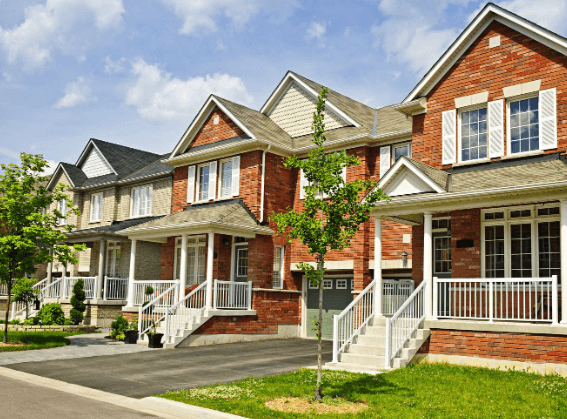Exploring the Different Types of Real Estate Properties

Real estate is a diverse field offering various property types suited to different needs and investment goals. Whether you’re a prospective homeowner, a commercial investor, or someone interested in specialty sectors, understanding the main types of real estate properties is essential. Here’s a breakdown of the different categories in real estate:
1. Residential Real Estate
Residential properties are meant for individuals and families to live in. They range widely in terms of type, size, and location.
- Single-Family Homes: These are standalone structures intended for one family, offering privacy and space.
- Apartments and Condominiums: Typically located in urban areas, apartments, and condos provide convenience and are part of a larger building or complex.
- Townhouses: Often multi-floor homes sharing walls with neighbors, they blend aspects of single-family homes and condos.
- Multi-Family Units: Duplexes, triplexes, and other multi-family residences provide housing for more than one family, making them a popular option for real estate investors.
See also: Investor Activity in Real Estate Markets: Trends, Opportunities, and Impacts
2. Commercial Real Estate
This category includes properties primarily used for business purposes, encompassing a range of industries and uses.
- Office Buildings: Designed for corporate use, these include everything from small offices to large skyscrapers housing multiple businesses.
- Retail Spaces: Shopping malls, storefronts, and other retail locations fall under this category. They attract consumer traffic, making them ideal for businesses.
- Industrial Real Estate: These properties are used for manufacturing, warehousing, and logistics purposes, offering unique zoning and infrastructure to support industrial operations.
- Hotels and Hospitality: Properties catering to tourism and business travelers include hotels, motels, and resorts, focusing on the service industry.
3. Industrial Real Estate
Industrial real estate focuses on properties for manufacturing and logistics. It includes:
- Warehouses: Essential for distribution, these large facilities are strategically located near transportation hubs.
- Manufacturing Facilities: Properties designed for heavy-duty production and storage, often outfitted with specialized equipment and ample space.
- Flex Spaces: Offering a blend of office and industrial space, flex spaces can be adapted to a wide range of uses.
4. Land
Land can be a versatile investment type and includes raw, undeveloped land or plots intended for agricultural or commercial development.
- Agricultural Land: Used for farming and agriculture, these properties often support rural communities and can offer long-term returns.
- Residential or Commercial Development Land: These plots are often bought with the intention to build housing, retail, or other commercial projects.
- Recreational Land: Areas designated for parks, camping, or outdoor activities, making them ideal for tourism.
5. Special Purpose Real Estate
Special purpose real estate serves unique functions beyond traditional commercial and residential uses.
- Healthcare Facilities: Hospitals, clinics, and other health-related buildings fall into this category, focusing on community wellness.
- Educational Properties: Schools, universities, and other educational institutions are essential for community infrastructure.
- Public Service Facilities: Government buildings, libraries, and public centers serve administrative and community purposes.
Each of these property types offers unique advantages and challenges for investors and end-users alike. Understanding your goals and the characteristics of each category can help you make informed decisions, whether for personal use or investment.



